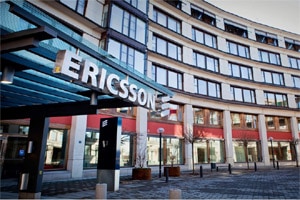The digital transformation is sweeping across all industries and the telecom industry is no exception to this trend. Today, a telecom operator has to touch multiple points to provide the digital experience to the customers in a seamless manner which could actually mean bringing together elements of voice, data, video onto a single platform. Paolo Colella, head of region, Ericsson India tells PP Thimmaya that in a networked society, consumers are increasingly expecting digital experiences from telecom operators much like other industries. Excerpts:
What would you mean by digital telco transformation?
In relation to service providers, the term ‘transformation’ means a radically new approach to the network and the IT systems layer (and how the two interrelate to each other), how the service provider interacts with customers, suppliers, and partners; and how the company competes in the marketplace. The prefix “digital” simply means that in a world where all-IP networks are pervasive, where big data and analytics are key to competitiveness, this transformation can only occur if it happens using the latest architectures, technology, know-how, and channels.
To be considered a digital telco, an operator must provide a consistent experience across all customer interaction channels— ranging from mall-based service centres to the internet. Digital telcos should also be capable of seamless sales, upselling and customer retention—and provide subscribers with the highest possible levels of self-care. Other prerequisites include near real-time service delivery and activation processes, effective and integrated management of data assets from both within the company and external channels, and the ability to deliver the highest levels of customer experience.
What are the benefits that telecoms can look at by being digitised?
Telecom industry plays a key role in digitisation across sectors and industries. Most organisations are dependent on telecom networks to provide online/mobile experiences personalised as per customers’ preference for experience enhancement and retention. However, the telecom industry’s self-digitisation, in terms of how it interacts with consumers, has lagged so far.
With emergence of networked society, consumers are increasingly expecting digital experiences from telecom operators much like other industries. Digitisation provides tangible benefits to operators such as better customer experience, streamlined business processes and ultimately the ability to stay relevant to customers. It enables telecoms to design and invent products, services and discounts to match the requirements of each customer. Further, clubbed with omni-channel experience, customers will see value creation leading to superior consumer experience and hence retention.
What sort of potential do you see in a market like India?
More and more operators are realising the need to transform to digital service providers, which will enable them to change the way they interact with their customers. Digital telco is a new operation model for creating services enabling omni-channel sale success, improving operation agility and cost efficiencies.
Herein, new products must be created from many moving and changing parts—and brought to market quickly to give customers the services they want, when they want them. Ericsson is already involved with leading service providers to stream line their business process operations to provide up-to-the-minute, end-to-end order visibility.
In addition to same most of the operators are already looking at our advanced analytics solutions to better understand the customer; with increased capabilities to analyse data in real-time are as a first step to increase customer loyalty. As operators seek to boost their net promoter scores, Ericsson’s patent-pending service level index (SLI) offers a real-time view of how the customer experience measures up at any given moment, offering opportunities to make quick changes with positive impacts, and close the gap between technical KPIs and NPS.
Do Indian telcos need to transform into digital telcos?
As we move toward the networked society, operators are facing growing challenges in meeting the demands of consumers who are fast becoming sophisticated users of a range of advanced communication services. With the uptake of mobile broadband and smartphone usage, consumers now want access to such services as Facebook, YouTube, in combination with voice and data communication, and they expect that operators can provide them whenever, wherever and however they wish. On top of this, these services must be easy to get, use and pay for, regardless of which is used.
There are a number of forces shaping this transformation. Service providers and operators are striving to become more competitive, efficient and attractive to consumers while they adapt to a diversified business environment. In many cases, business processes and operations, management tools, networks and competence need to be transformed and modernised to support this new environment, ensuring business objectives and financial targets are met, and consumer experience expectations are fulfilled.
What sort of services can Ericsson provide to telcos?
We are combining consulting and systems integration services with the industry’s most comprehensive operations support systems/business support systems portfolio to support a telco’s digitisation journey. We are enabling telco digitisation through our offerings in cloud, analytics, product, solutions, system integration and services. With 66,000 services professionals in 180 countries speaking more than 100 languages, we are supporting operators in creating attractive and appealing offerings for consumers.

